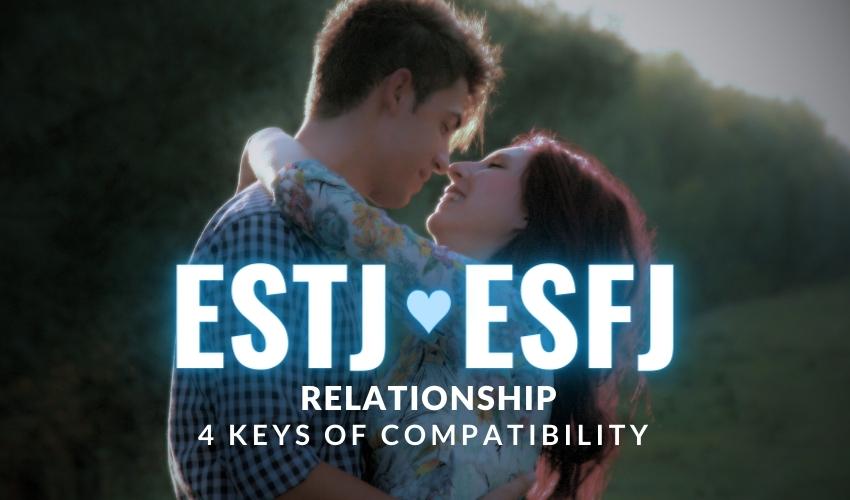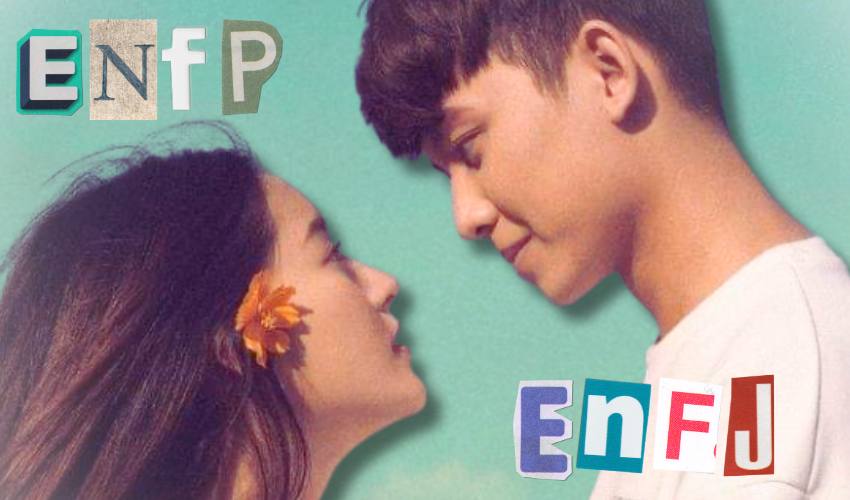In the process of trying to find love, we may sometimes sabotage ourselves. Each Myers-Briggs type may have some tendencies that serve as a detriment to their own happiness. Here is the personality flaw most likely to cause each MBTI type’s relationship to go bust.
INFJ – Overthinking Everything.
INFJs are always looking for something that they can’t quite define or put their finger on. They are perfectionists chasing after a relationship ideal that may or may not be realistic. Even when they find a good partner, INFJs may end up sabotaging their own happiness by fixating on nominal imperfections in both themselves and others and excessively dwell on and over-analyze the actions and words of their partner.
INFP – Being a Doormat.
INFPs can become blinded by their own idealism and have a tendency to stay in unhealthy relationships for too long. This may be due to denial over the reality of the situation. They tend to see things the way they hope and want to see them rather than how they really are. INFPs may endure a manipulative and abusive partner simply because INFP chooses to focus on the best in people they care about and minimize their faults.
INTJ – Callousness and Lack of Affection.
Even though INTJs may love their partners, they can have a heck of a way of showing it. INTJs tend to flout things like chivalry and overt displays of affection viewing them as demeaning or embarrassing. Anniversaries, sentimental holidays and other traditions are things that INTJ do not value as much as other types and so they may overlook them as well. They can also offend their partners with criticism of their way of doing things.
INTP – Being Oblivious To Partner’s Feelings.
INTPs rate high in “obliviousness” to their partner’s emotional needs. Because INTPs are emotionally low maintenance, they may forget that their partner might not be the same way. INTPs along with other NT types, may need reminders to pay attention to their family and relationships because they have a tendency to spend much of their time with personal projects to the point that their partners perceive them as cold and uncaring.
ENFJ – Doing Too Much.
ENFJs bolster their sense of self value and worth from the good they do for others and the world at large. ENFJs want to live up to the image they have in their heads of the type of person they think they need to be for people to value and respect them. In the process of investing so much of themselves in other people, they may neglect to invest in themselves. ENFJs may base too much of their self-worth on what they do for others to the point it becomes a crutch.
ENFP – The Desire To Abandon Ship.
ENFPs like to be in committed relationships if they can find someone suitable enough to keep anchored. However, ENFPs are prone to thinking the grass on the other side is greener and may sometimes wonder if they are missing out on something. They can grow discontent with what they have and fear they might be stagnating. The prospect of being boxed in or constrained by their relationship can spur them to suddenly do things that sabotage or strain relations with their partner.
ENTJ – Prioritizing Other Things.
ENTJs may have difficulty compromising their objectives for the sake of accommodating others. They have to choose, they may too often prioritize their goals and ambitions over quality intimate time invested into their relationships. Their relationships can seem like an afterthought to their partners and this could hurt them more than ENTJ realizes.
ENTP – Being Skittish and Inconsiderate.
ENTPs may leave their partners exasperated by their wild and sporadic impulses. ENTPs have a knack for rushing into new things and taking risks that their partners may not see as justified or worthwhile. ENTPs may also annoy them by being unpredictable and doing things without checking with them first. At the same time, ENTPs and their lack of orderly lifestyle may not jibe well with partners who strive to keep their environment neat and tidy.
ISFJ – Expecting Partners To Be Mind Readers.
ISFJs tend to develop pent up emotions that get unloaded in a stress-induced conniption. ISFJs remember almost everything and hold against their partners offenses and perceived slights that they may not even be aware of. In order to avoid conflict ISFJs often hold their peace and quietly deal with their grievances rather address them directly. When ISFJ suddenly does complain and criticize, their partners may feel unfairly persecuted for not being a telepath.
ISTJ – Anal Retentiveness
ISTJs have their way of doing things and they prefer not to deviate from that. Consequently, they may not be open to trying new things in the relationship and may not express enough appreciation for what their partner does for them. They often hide behind a wall of stoicism and dry humor. In relationships ISTJ can be fussy and inflexible about how things should be done.
ESFJ – Neediness.
ESFJ’s need for appreciation and acceptance can compel them to acts of desperation and annoying behavior. They may overreach and do too much for their partner especially if their partner is more of an independant type of person. If their beloved is the type who likes to handle most of their own business, the ESFJ may feel unnecessary and unable to express their love the way they know best by being helpful to them.
ESTJ – Being A “Right-Fighter”.
It is often the case that ESTJs believe they know best. They will get into disputes with their partners when their beloved doesn’t want to follow ESTJ’s script. ESTJ’s rigidity and resistance to persuasion can make them impossible to deal with sometimes. They may trample on the feelings of their partner in the process of making their point and end up having to later apologize for being such a arse hole.
ISFP – Running From Criticism.
ISFPs are sensitive souls for whom criticism can be difficult to deal with especially when coming from someone they care about. ISFPs may turn cold and withdraw from their partner when they feel rejected or judged negatively. When this happens, ISFPs may seek validation elsewhere to restore confidence and possibly make their partner jealous.
ISTP – Bottling Up Their Feelings.
ISTPs can be a closed book most of the time, even to the people closest to them. They maintain a certain detachment and control over their emotions that doesn’t showcase exactly what they’re experiencing inside. This can make their partners feel a bit cut off and deprived of the level of intimacy they would desire and feel they deserve from their ISTP companion.
ESFP – Making Their Partner Compete For Attention.
Even in a relationship, ESFP cannot resist hobnobbing and flirting with all sorts of people. They are full of vitality and positive energy that they want to share with the world. This can potentially make some partners jealous especially when they want ESFP all to themself. It may not be ESFP’s intention to make their relationship partner jealous and so they may need to be mindful toning down some of their natural mojo..
ESTP – Dismissing Partner’s Feelings.
ESTPs can be irreverent when it comes to the sensitivities of others. They have a tendency to act first and think about the ramifications later and may fail to consult with their partners before making making important decisions. Partners may feel like an accessory dragged along in the whirlwind of ESTP’s conquest for sensation and conquest.
related posts:
- The Hidden Superpower of Each MBTI Type
- Why The MBTI Types Are Sleep Deprived
- The Role of Each MBTI Type in the Apocalypse
- How To Get Each Myers-Briggs Type To Love You
- Defense Mechanisms Each Zodiac Sign Is Likely To Use
- 6 Signs An INTP Likes You | How INTPs show love
- 6 Reasons Why INTJ and INFJ Fall In Love
- Love Defined By Each Myers Briggs Type
- https://overanalysingliterature.wordpress.com/2018/05/20/why-mbti-is-good-for-fiction-but-probably-not-much-else/
- https://acoarecovery.wordpress.com/2018/04/14/27138/
- https://writingiscolorful.wordpress.com/2018/02/26/a-fandoms-obsession-with-mbti/
- https://selemoir.wordpress.com/2018/04/20/mbti-and-intelligence/
- ISFJ and ISTJ in love: 5 Essential Dynamics of their Relationship - February 24, 2024
- ENTP and ENTJ in love: 6 Critical Dynamics of Their Relationship. - February 18, 2024
- ESTJ and ESFJ in love: 4 Key Aspects of their Relationship. - February 12, 2024





